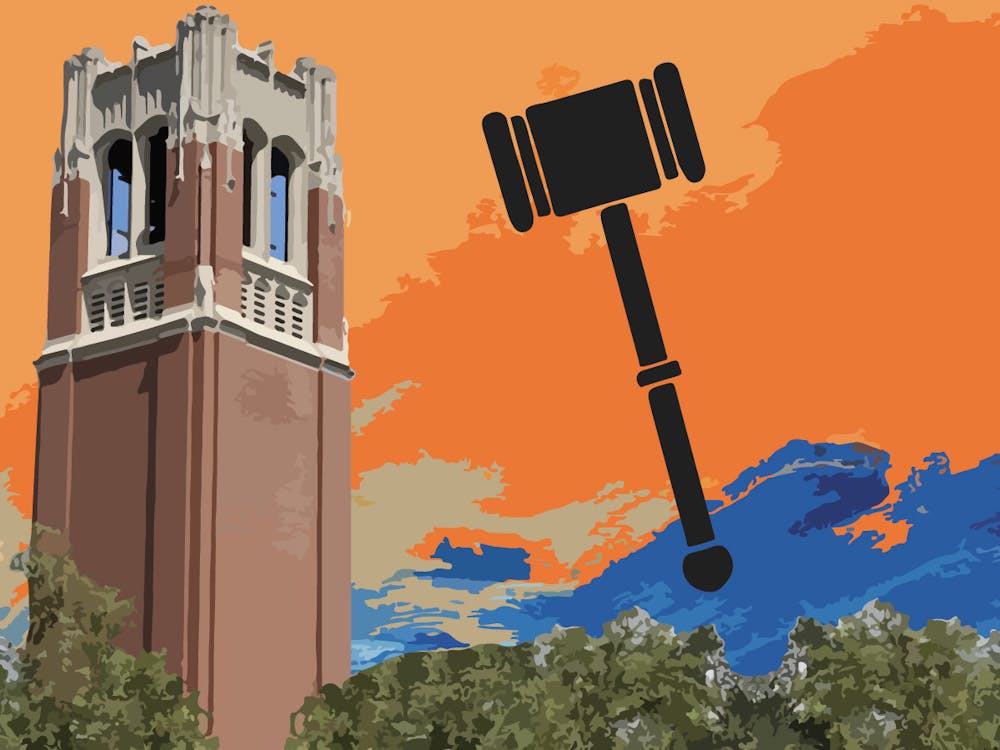A federal judge prohibited UF from enforcing its conflict-of-interest policy, which the university had used to bar professors from testifying in court, Friday morning.
Six UF professors suing the university over their academic freedom and First Amendment rights asked District Judge Mark Walker, a double Gator, for a preliminary injunction, an order to end UF’s policy.
Professors must gain approval from the university to engage in outside activities, like giving expert testimony in court, according to the policy. The conflict-of-interests policy allows UF to bar professor testimony and other outside activities that conflict with their university duties.
In November, six professors filed a lawsuit against UF for barring them from providing expert testimony in court cases against the state.
After receiving criticism from the United States Congress, university accreditors and the general public, UF President Kent Fuchs appointed a task force to review the policy. The task force presented Fuchs with recommendations to improve the policy, and he accepted all of them Nov. 23.
In his order, Walker wrote that the policy chilled professors’ speech.
Walker cited Board of Trustee Chairman Morteza “Mori” Hosseini's statements made during a Board of Trustees meeting Dec. 3 as a reason for ruling in favor of the professors’ motion.
During the meeting, Hosseini demanded an end to faculty members taking advantage of their positions and advocating personal political viewpoints.
Hosseini credited UF’s accomplishments within the last five years to state leaders. He said these leaders were fed up with the waste of state money on the professors misusing their positions.
“Chairman Hosseini’s remarks made plain that UF was beholden to the Florida Legislature and that it would not permit its faculty to continue offending lawmakers in Tallahassee,” Walker wrote.
The second part of the professors’ motion challenged the university’s amicus brief policy, which oversees written expert statements in a court case; however, Walker denied this. The school’s conflict-of-commitment policy, which prohibits faculty from devoting too much time to outside activities, will remain in place according to the order.
Walker’s decision to block UF from enforcing its conflict-of-interests policy is a major step towards protecting professors’ contributions to democracy, David O’Neil, the professors’ lawyer, wrote in a statement.
“The decision sends a clear message to public universities across the country – and to politicians who would try to interfere with them – that they too must honor the constitutional principles that make the college campus a vital engine of a free society,” O’Neil wrote.
UF is reviewing the judge’s order to determine its next steps, Hessy Fernandez, a UF spokesperson, wrote in an email.
Contact Elena Barrera at ebarrera@alligator.org. Follow her on Twitter @elenabarreraaa.

Elena is a second-year journalism major with a minor in health sciences. She is currently the University Administration reporter for The Alligator. When she is not writing, Elena loves to work out, go to the beach and spend time with her friends and family.






